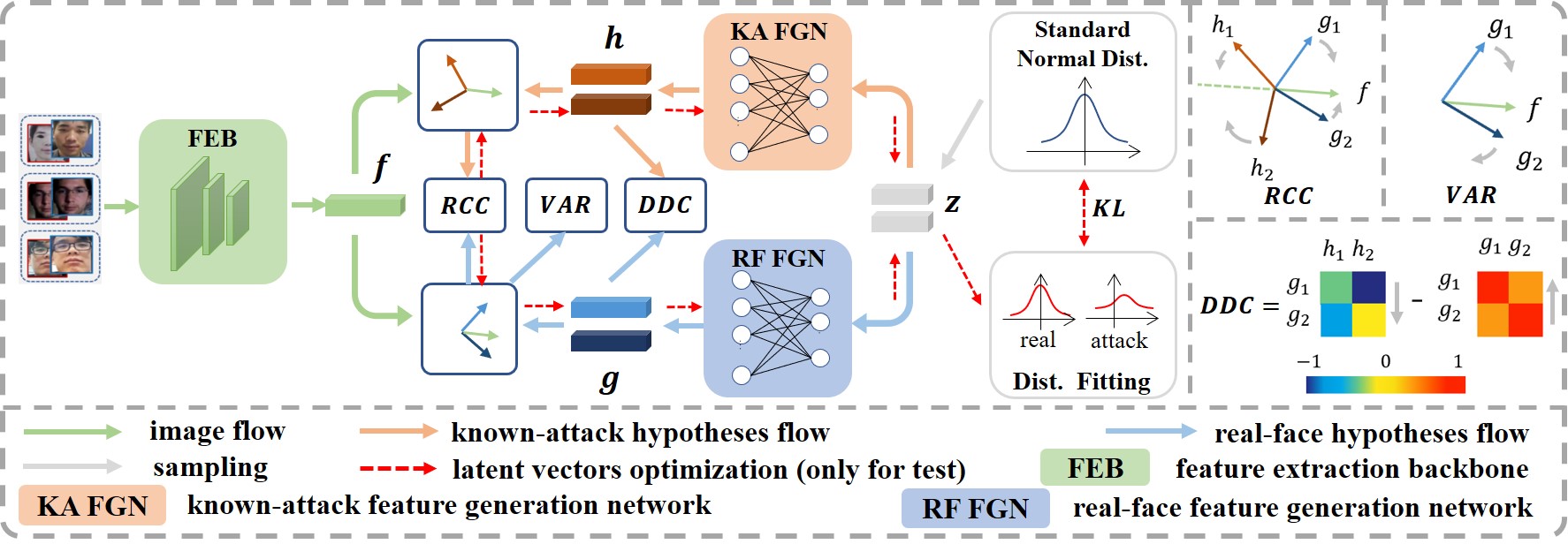Feature Generation and Hypothesis Verification for Reliable Face Anti-Spoofing
Although existing face anti-spoofing (FAS) methods achieve high accuracy in intra-domain experiments, their effects drop severely in cross-domain scenarios because of poor generalization. Recently, multifarious techniques have been explored, such as domain generalization and representation disentanglement. However, the improvement is still limited by two issues: 1) It is difficult to perfectly map all faces to a shared feature space. If faces from unknown domains are not mapped to the known region in the shared feature space, accidentally inaccurate predictions will be obtained. 2) It is hard to completely consider various spoof traces for disentanglement. In this paper, we propose a Feature Generation and Hypothesis Verification framework to alleviate the two issues. Above all, feature generation networks which generate hypotheses of real faces and known attacks are introduced for the first time in the FAS task. Subsequently, two hypothesis verification modules are applied to judge whether the input face comes from the real-face space and the real-face distribution respectively. Furthermore, some analyses of the relationship between our framework and Bayesian uncertainty estimation are given, which provides theoretical support for reliable defense in unknown domains. Experimental results show our framework achieves promising results and outperforms the state-of-the-art approaches on extensive public datasets.
PDF Abstract


